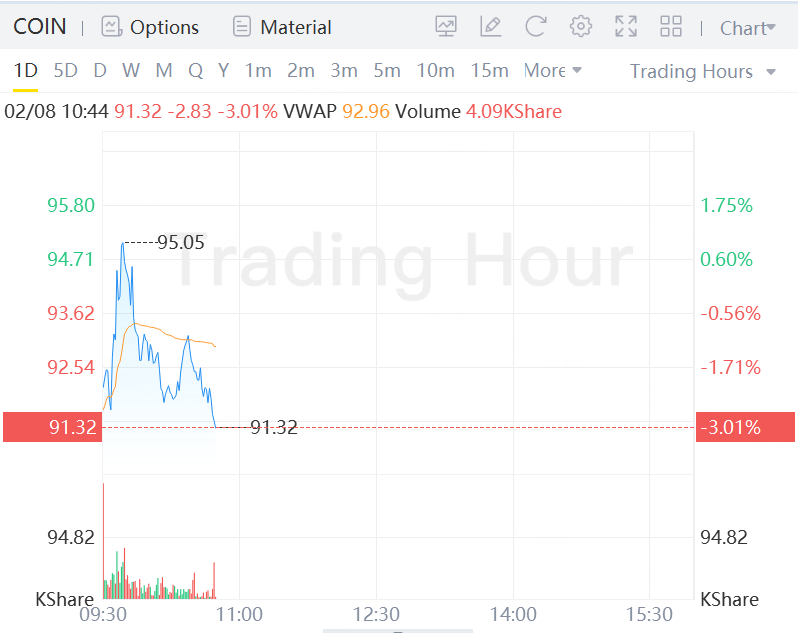As Coinbase Global Inc. awaits its own regulatory fate, Wall Street has been scanning other cryptocurrency-related legal battles for signs of what's to come.
Coinbase shares $(COIN)$ have been on a tear lately, rising 167% so far this year, and they enjoyed a particularly sharp one-day rally in mid-July after a federal judge in a case unrelated to Coinbase determined that Ripple Labs' token wasn't a security when sold to members of the general public on crypto exchanges.
Investors saw that ruling as a potentially favorable signal for Coinbase, which was sued by the Securities and Exchange Commission earlier this year. The SEC charged the company with operating an unregistered national securities exchange and took issue with Coinbase's crypto-staking program.
Coinbase's stock is falling 3% in morning trading on Wednesday, however, after a judge hearing another unrelated crypto case, this time related to Terraform, indicated a tougher read of things.
"As a reminder, in Ripple, [the judge] ruled that retail buyers of Ripple's programmatic on-exchange sales were not aware that their money went to Ripple (i.e., they were not investing in a common enterprise), and while many buyers purchased XRP [the Ripple Labs crypto token] with an expectation of profit, they did not derive that expectation from Ripple's efforts," Barclays analyst Benjamin Budish wrote in a note to clients Tuesday.
The judge in the Ripple case essentially drew a line between sales to members of the general public on crypto exchanges and sales to sophisticated institutional investors by applying the Howey test, which is used to determine whether transactions are investment contracts.
But the judge in the Terraform case seemed to take a different view. Budish wrote that the judge overseeing the Terraform suit saw "no such distinction between purchasers (i.e., informed institutional investors vs. retail investors buying blindly on an exchange)."
By Budish's assessment, "this ruling presents regulatory precedent that reads through negatively to Coinbase's lawsuit (though there remain a very wide range of possible outcomes)."
Berenberg Capital Markets analyst Mark Palmer said that saw the Terraform developments as "a resounding rejection of the Ripple ruling...potentially complicating COIN's use of that ruling in its own case."
Further, one Coinbase defense is the "major questions doctrine," which Palmer said comes from a Supreme Court ruling that sought to block regulatory bodies from overstepping their authority.
"[T]hat ruling held that 'major questions' must be addressed by Congress," Palmer wrote. "Terraform Labs invoked the doctrine in its defense, and Judge Rakoff rejected its use, observing that the doctrine was meant to apply to industries of 'vast economic and political significance,' a description that did not fit the crypto industry."

